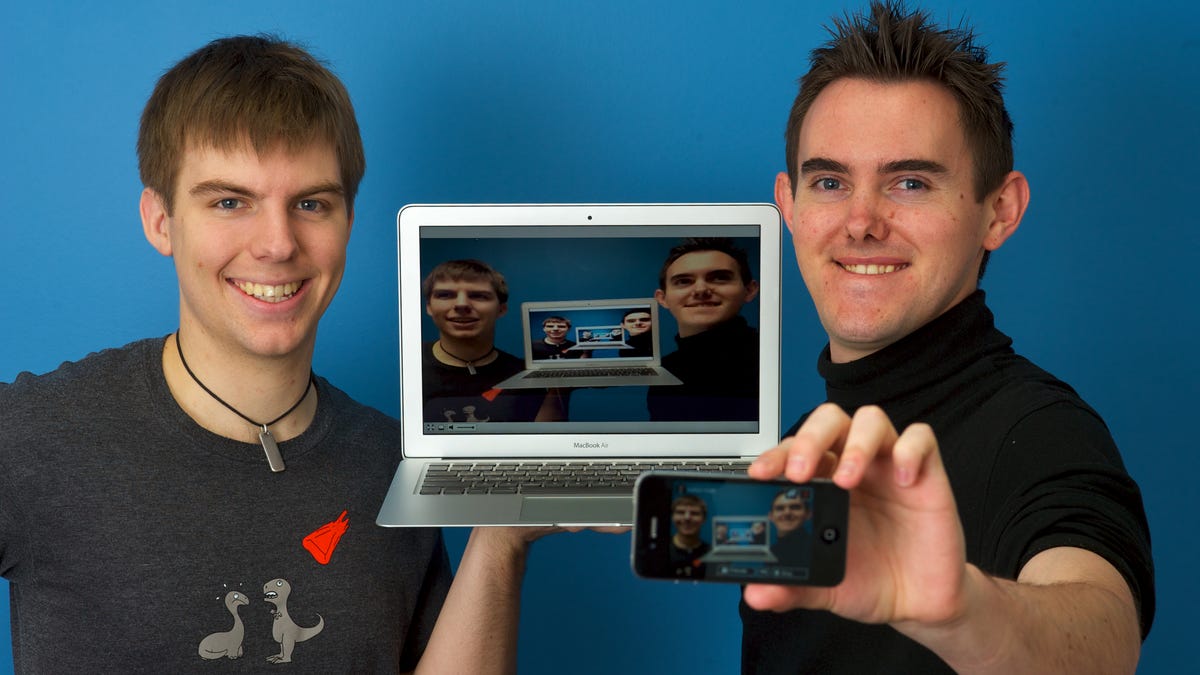Kondoot: A video social network worth keeping an eye on
A startup from Australia has built a social network around live video--and it's already in 137 countries. The key challenge, of course, is to get more users.

A new social network--yes, I know, I know--is on the scene, this one coming from Australia. And it's worth keeping an eye on.
It's called Kondoot, a play on the word conduit, and it's all about video--more specifically, live broadcast. The site (there are also mobile apps for iPhone and Android) doesn't want you simply to upload and share your videos, a la YouTube, and it's not going after straight live broadcasting via the Web, like Ustream.
Kondoot wants users to broadcast live events, big and trivial, and it's built a social network around that. You can search, like, connect, follow, and instant-message--all the things we've come to expect on that other social network to which the duo behind Kondoot like to compare themselves.
"The big guys--Facebook, Google+--are all doing social, and Livestream and Ustream are doing live video," said co-founder Mark Cracknell, 21. "We're trying to combine them...There was no one hub."
That hub is what Cracknell and 25-year-old Nathan Hoad, a friend from college in Brisbane, set out to create. The pair spent 16 months in stealth mode before launching in August. Kondoot opened up to the United States in December, and the startup now claims members in 137 countries, with particular strength in the States and across South East Asia.
It all sounds promising, but it's hard to tell exactly how promising. Kondoot isn't yet releasing meaningful metrics, such as how many actual users the network has, though he says those details will soon be disclosed, due to fund-raising efforts. Cracknell did reveal that the majority of Kondoot's traffic comes from people clicking on links shared on Facebook--showing that creating a social network without Facebook's help is impossible at this point.
The key challenge, of course, is to get more users. Good content will lead to more members, and more members will lead to better content. I just logged on, and the selection for live videos was slim. It included one of someone broadcasting her fish tank under the headline, "Fish World."
Kondoot has raised 1 million Australian dollars (about $1.1 million) via the Australian Small Scale Offering Board, which makes is a quasi-public company. Demand has been strong, and Cracknell said Kondoot is now trying to raise another 10 million Australian dollars--a process that will force it to share more about the business.
Another thing that distinguishes Kondoot from other social networks is its business model, which doesn't rely on advertising. The company is promoting its just-launched live-broadcasting system, through which anyone can sell tickets and let fans attend virtually, with Kondoot taking a 20 percent cut of revenue.
Kondoot's sales team--the startup now has 10 people in all--is trying to land music festivals as customers, but it's also hoping to appeal to anyone who wants to charge to watch a live event. A seminar speaker, for instance, could create an event, sell tickets, and then use the whole system to broadcast and interact with viewers.
Clearly, there's an opportunity here, but the challenges are substantial. It's also not hard to imagine Google trying to beef up Google Hangouts in a way that quickly makes it easy for, say, public speakers to live-broadcast their events. Or it could make YouTube more social than and it already is, adding live broadcasting as a feature for users.
But Cracknell remains undeterred. He and his team are amping up Kondoot's presence in the United States, with plans soon to open an office in New York. Then they're going after Europe. He said he's had talks with venture capitalists in Silicon Valley but that Kondoot doesn't need the money right now.
So is this a long-term play or a startup built to flip, as has become so common?
"From day 1, we've said that we want to make a company that could run for 100 years and could be sold tomorrow," Cracknell said.

